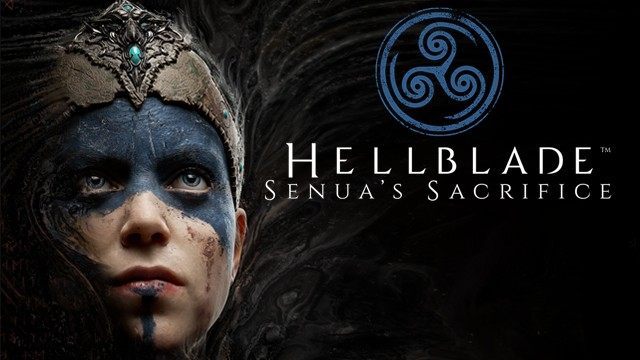Hellblade: Senua’s Sacrifice is a graphically beautiful game that explores the journey of a young woman named Senua who is looking for her lost lover, Dillion. Her journey involves fighting her worst nightmares, facing her fears, and fighting the dark gods that hold the soul of her beloved. There is a catch to her journey: she hears voices in her head that whisper through her journey, distracting her and clouding her judgement. Many reviews of this game say that it is an amazing game about mental illness — but is that true? What if Hellblade is a ghost story told from her point of view as her soul travels through hell? Could it be that Hellblade is a Dante’s Inferno with a Viking twist?
As Senua goes through her journey, the voices in her head express her doubt and fears and get louder when she starts to get hurt or she panics. Her end goal is to conquer the darkness that consumes her and find the soul of her lost lover and release him from Hel. The opening of the game is a basic walkthrough until she reaches the first boss. With this first boss, Senua made a deal that caused her to be marked. Now parts of her vision become skewed, and that could have something to do with having a mental illness, or it could be that after making a pact to pass through Hel, she sees the images and figures that do everything in their power to stop her from going further into Hel.
Another example of Senua strolling through Hel — and not suffering from mental illness — is that the things that Senua sees aren’t a part of her imagination but a part of the old tales that are told to the player from the point of view of Druth, her spirit guide. Druth explains where Senua must go to save her lover Dillion. Each significant boss that she fights is a key to another level of Hel through which she must travel. One reoccurring theme before these boss battles is Senua suffering a horrible death in some form and then having a flashback of her talking to someone about the darkness that she sees and suffers through.
Senua might not actually be suffering from mental illness because as her journey goes on, she has a glimpse of her mother. Now one of her voices tells the backstory of her mother being about to see the dead and teaching Senua how to be able to do the same. Senua’s visions could possibly be her seeing the dead or the supernatural, and her journey is one of being able to cope with this power.
A decent example of this ability of Senua’s is her “shadow.” This “shadow” soon replaces Druth as her spirit guide whenever the game starts to get darker or harder for Senua. This “shadow” does more psychological harm to her than physical. It whispers, and unlike the many voices in her head that voice her insecurities and talk to her in first-person and second-person, it addresses her and points out her fears and insults her, even pushing her to commit suicide. This sounds familiar to Dante’s Inferno; as Dante went further into his journey of hell, he saw horrible sights and heard horrible voices telling him things.
As you reach the end, Senua challenges her faith in the gods and her actual “curse.” This leads to an epic ending with Senua realizing her truth, accepting what she can’t change, and growing as a warrior and a woman. Overall, Hellblade: Senua’s Sacrifice is a journey of letting go of her lover, mourning his soul, and moving on.








Published: Jan 12, 2018 12:13 am